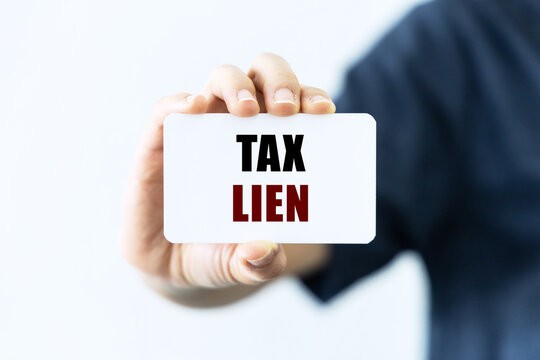Add Your Heading Text Here
Tax Liens in Utah: Discover Tax Deed Opportunities
Are you thinking of buying an undervalued asset in the real estate market—a property that you could own for a fraction of its market worth? Doesn’t that sound like a dream? However, this potential exists in the world of tax liens. In Utah, tax liens provide unique opportunities for savvy investors to enter the real estate market with low initial expenses and the potential for big profits. Understanding how tax liens work in Utah is not only vital but also necessary if you want to capitalize on this generally ignored financial approach.
In this blog, we’ll look at the intricacies of tax liens in Utah, how to obtain tax deeds, and why dealing with a Salt Lake City Tax Attorney could be a vital step in your investing journey. By the conclusion, you’ll understand how you may use tax liens to expand your real estate portfolio and make profitable investments.

What Are Tax Liens?
Tax liens are legal claims filed by the government against property owners who fail to pay their property taxes. This lien authorizes the government to collect unpaid taxes, plus interest and penalties, from the property owner. In rare situations, if taxes are not paid, the lien may result in the sale of the property.
In Utah, tax liens are sold to investors at auction. By purchasing a tax lien, you are essentially repaying the property owner’s debt to the government. The property owner owes you, the investor, the lien amount plus interest. If the property owner fails to pay within a specific time frame, you may be able to purchase the property via a tax deed.
How Do Tax Liens Work in Utah?
Utah has a well-defined procedure for handling tax liens. Here’s how it usually works.
- Delinquent Taxes: When a property owner fails to pay their property taxes, the amount owed becomes a lien on the property.
- Notification: The property owner is notified of the delinquent taxes and the resulting lien on their property. They are offered a grace period to pay their taxes and avoid additional fines.
- Tax Lien Sales: If the taxes are not paid, the county may opt to sell the tax lien at public auction. These auctions are often held annually, and investors can bid on the liens.
- Interest and Penalties: The successful bidder pays the unpaid taxes, which the property owner must settle, plus interest and penalties, in order to redeem their property.
- Redemption Period: In Utah, property owners usually have four years to redeem their property by paying off the lien. During this time, the investor receives interest on their investment.
- Tax Deed: If the property owner fails to redeem the property within four years, the investor can take legal action to obtain a tax deed, which transfers ownership of the property.
Why Should I Invest in Tax Liens in Utah?
Investing in tax liens in Utah can be a profitable proposition for various reasons.
- High-Interest Rates: Utah offers competitive interest rates on tax liens, which can lead to significant returns for investors. Utah’s interest rates can reach 10%, making it a more appealing investment than other states.
- Low Entry Cost: Investing in tax liens typically involves a lesser initial investment than purchasing the property outright. This makes it more accessible to new investors seeking to enter the real estate industry.
- Property Acquisition: If the property owner fails to redeem the lien, you may be able to acquire the property for a fraction of its market worth. This is particularly enticing in regions with high property values, such as Salt Lake City.
- Portfolio Diversification: Including tax liens in your investing portfolio might help diversify your assets. It has a distinct risk-reward profile than standard real estate investing.

Risks To Consider
While tax lien investment in Utah has many advantages, it is not without risk. Here are some possible problems you should be aware of:
- Property Condition: When you purchase a property through a tax deed, you may only know its condition after the transaction. This could result in unforeseen repair expenditures.
- Redemption Risk: The property owner may redeem the lien, in which case you will not obtain the property. However, you will continue to earn interest on your investment.
- Legal Complexities: Navigating the legal implications of tax liens and deeds can be challenging. It is critical to understand the legal requirements and processes governing this type of investment.
The Significance of a Salt Lake City Tax Attorney
Given the complexities of tax lien investing, contact with a Salt Lake City Tax Attorney is strongly advised. Tax Law Center can provide essential legal advice on tax liens with their experts and assist you in navigating any issues. Here’s how a tax attorney can help:
- Legal Advice: A tax attorney can clarify Utah’s tax lien rules and regulations. They can also explain your rights and obligations as an investor.
- Due Diligence: Before investing in a tax lien, consult with a tax professional to ensure that the property has a clear title and no other outstanding liens or encumbrances.
- Representation: If you face legal complications, such as lien disputes or difficulties obtaining a tax deed, a tax attorney can represent you in court.
- Tax Planning: A tax attorney can assist you in developing an investing strategy that maximizes tax benefits while minimizing liabilities.
How to Get Started with Tax Lien Investing in Utah
If you want to learn more about tax lien investment in Utah, here’s how to get started:
- Research: Begin by investigating the Utah counties that offer tax lien sales. Each county may have its own set of procedures, so make sure you understand the relevant laws and deadlines.
- Attend auctions. Participate in local tax lien auctions, both in person and online. Pay attention to the bidding procedure and the homes for sale.
- Evaluate properties: Before bidding on a lien, determine the property’s value and condition. Consider the location, market trends, and potential dangers.
- Budgeting Wisely: Determine how much you want to invest and stick to your budget. Remember to factor in probable legal fees, property repairs, and other costs.
- Seek professional advice: Consult with a Salt Lake City Tax Attorney to help you understand the legal and financial implications of tax lien investing.
Conclusion
Tax liens in Utah provide exciting prospects for investors to diversify their portfolios while acquiring properties at a lesser cost. However, they carry dangers that must be carefully considered. Understanding the procedure and speaking with a Salt Lake City Tax Attorney can enable you to navigate this field and optimize your financial potential confidently.
Whether you’re new to real estate investing or a seasoned pro, tax deed opportunities in Utah can be a smart move. Success often depends on diligence, patience, and understanding of the legal landscape. The Tax Law Center provides the experienced counsel you need to make informed decisions and take advantage of these opportunities. Contact us if you need assistance with taxes or debts. We manage your projects as if they were our own, giving you peace of mind.
